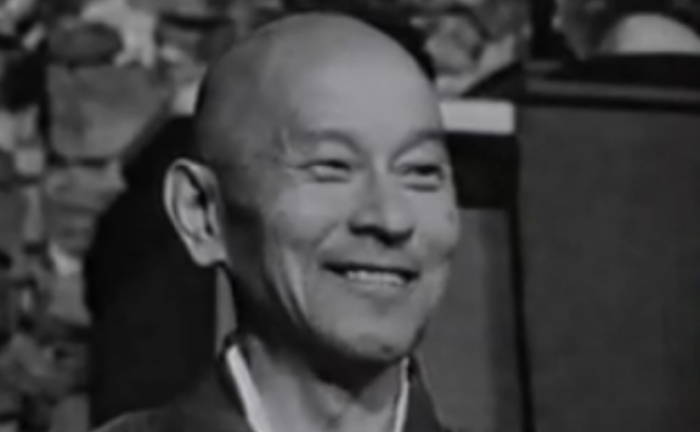
I was a Zen student more than eight years ago.
Way before being introduced to the Dalai Lama and the Tibetan culture, I had a keen interest in Zazen and all it encompasses.
Shunryu Suzuki, a Japanese priest of the Soto lineage, was the catalyst behind my mental and emotional transformation. He was known as the founding father of Zen in the United States; he established the first Zen Buddhist monastery outside Asia.
Yesterday, I started rereading one of his books.
It took me one page and a few simple ideas to remember how much we need his wisdom. His ideas are too simple, yet too striking.
Sometimes, you read them twice. Other times, you stop everything and reflect on them.
Whatever you’re doing now, pause everything and delve into these 20 consequential sayings—I promise they’re worth it:
“Wherever you go, you will find your teacher, as long as you have the eyes to see and the ears to hear.”
“Leave your front door and your back door open. Allow your thoughts to come and go. Just don’t serve them tea.”
“When you try to understand everything, you will not understand anything. The best way is to understand yourself, and then you will understand everything.”
“Life is like stepping onto a boat which is about to sail out to sea and sink.”
“In the beginner’s mind there are many possibilities, but in the expert’s there are few.”
“When something dies is the greatest teaching.”
“Emotionally, we have many problems, but these problems are not actual problems; they are something created; they are problems pointed out by our self-centered ideas or views.”
“The best way to control people is to encourage them to be mischievous.”
“When you are practicing Zazen, do not try to stop your thinking. Let it stop by itself. If something comes into your mind, let it come in, and let it go out.”
“There is no connection between I myself yesterday and I myself in this moment.”
“If you think you will get something from practicing Zazen, already you are involved in impure practice.”
“In our everyday life our thinking is ninety-nine percent self-centered. ‘Why do I have suffering? Why do I have trouble?’”
“We should forget all about some particular teaching; we should not ask which is good or bad. There should not be any particular teaching. Teaching is in each moment, in every existence. That is the true existence.”
“And we should forget, day by day, what we have done; this is true nonattachment.”
“When you feel disagreeable, it is better for you to sit. There is no other way to accept your problem and work on it.”
“If you want to obtain perfect calmness in your Zazen, you should not be bothered by the various images you find in your mind.”
“We cannot force anything.”
“Happiness is sorrow; sorrow is happiness. There is happiness in difficulty; difficulty in happiness. Even though the ways we feel are different, they are not really different; in essence they are the same. This is the true understanding transmitted from Buddha to us.”
“Because we put emphasis on some particular point, we always have trouble.”
“Good and bad are only in your mind.”
~
AUTHOR: ELYANE YOUSSEF
IMAGE: JAAP DEN DULK/FLICKR

Read 7 comments and reply